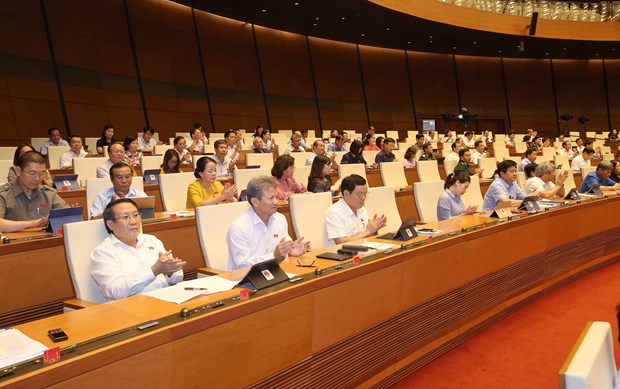
The law on public-private partnership (PPP) investment was adopted by the National Assembly (NA) on June 18 at the legislature's ninth session, with 92.75 percent of deputies voting in favour.
 |
| Legislators at the June 18 sitting, part of the National Assembly's ninth session in Hanoi. |
The law on public-private partnership (PPP) investment was adopted by the National Assembly (NA) on June 18 at the legislature’s ninth session, with 92.75 percent of deputies voting in favour.
Comprising 11 chapters with 101 articles, the law regulates investment activities and private investment attraction under the PPP model to certain important and essential infrastructure sectors.
PPP is one of the investment forms that have been applied in Vietnam, especially build-operate-transfer (BOT) projects in transport infrastructure development. However, this is the first time a specific bill on PPP has been submitted to the NA.
Chairman of the NA Committee for Economic Affairs Vu Hong Thanh said the law aims to create a sufficiently strong legal corridor for relevant parties to fulfil their obligations in PPP contracts.
It also demonstrates the State’s legal commitment to domestic and foreign investors, thus encouraging investors to join the State in PPP projects, he added.
The law focuses on five essential areas: transport; power grid and plants; irrigation, clean water supply, water drainage, and wastewater and waste treatment; healthcare and education – training; and information technology infrastructure.
Legislators also passed a resolution approving the 2018 State budget balance on the same day.
(Source: VNA)





